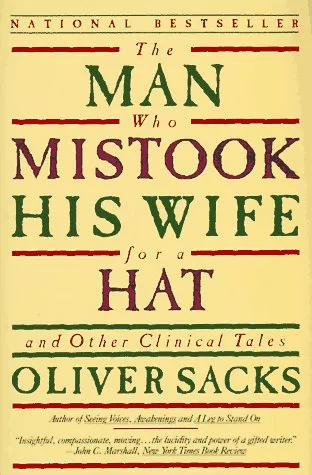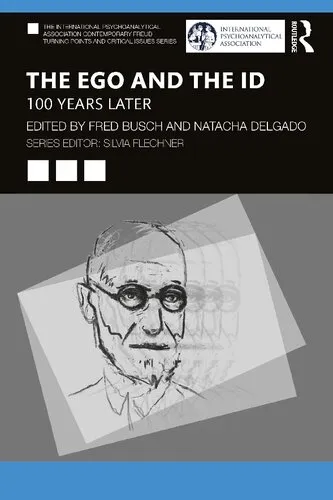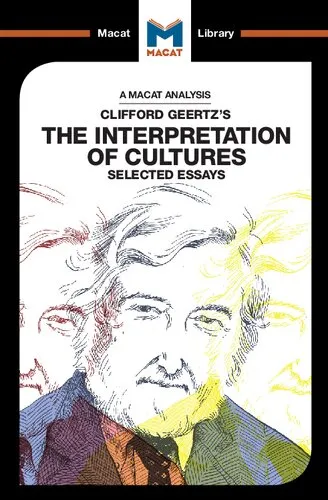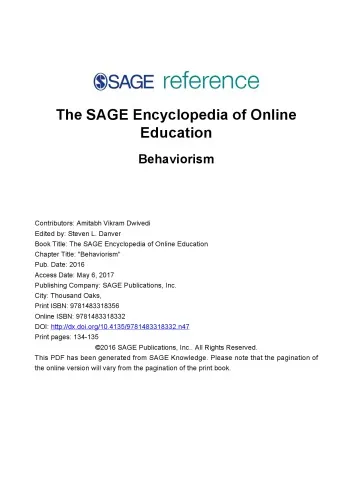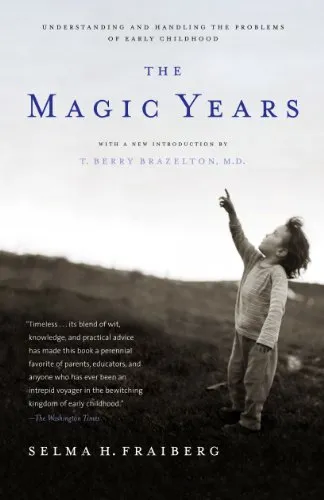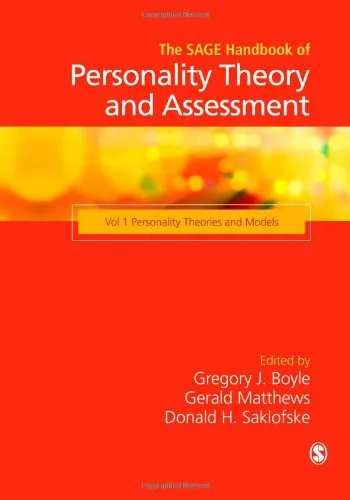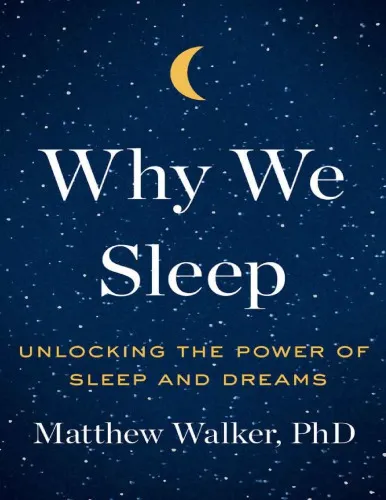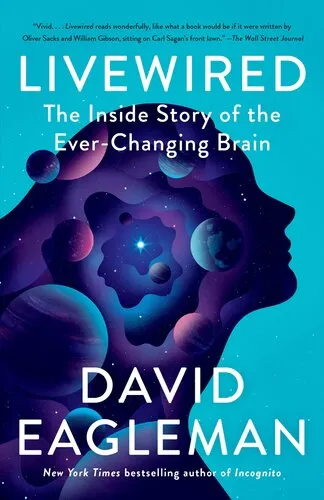The Man Who Mistook His Wife for a Hat: And Other Clinical Tales
4.6
بر اساس نظر کاربران

شما میتونید سوالاتتون در باره کتاب رو از هوش مصنوعیش بعد از ورود بپرسید
هر دانلود یا پرسش از هوش مصنوعی 2 امتیاز لازم دارد، برای بدست آوردن امتیاز رایگان، به صفحه ی راهنمای امتیازات سر بزنید و یک سری کار ارزشمند انجام بدینکتاب های مرتبط:
معرفی کتاب: 'The Man Who Mistook His Wife for a Hat'
کتاب 'The Man Who Mistook His Wife for a Hat: And Other Clinical Tales' نوشته اولیور زاکس، مجموعهای از داستانهای بالینی است که به بررسی فعالیتهای پیچیده مغز انسان و ناهنجاریهای عصبی میپردازد. این کتاب یکی از مهمترین آثار در زمینه نورولوژی و روانپزشکی است و خواننده را با دنیای شگفتانگیز و گاه چالشبرانگیز بیماران با شرایط عصبی نادر آشنا میکند.
خلاصه مفصل کتاب
این کتاب به چهار بخش تقسیم شده است که هر بخش به یک مجموعه خاص از مسائل و ناهنجاریهای عصبی میپردازد. بخش اول، 'از دستدادنها'، شامل داستانهایی از بیمارانی است که به دلیل آسیبهای نورولوژیکی، عملکردهای خاصی را از دست دادهاند. برای مثال، داستان معروف مردی که همسرش را با یک کلاه اشتباه میگیرد، بابت وجود اختلال در درک بصری و شناخت اشیا است.
بخش دوم با عنوان 'فزونیها'، گرفتار بیمارانی است که به شرایطی مانند Tourettes Syndrom دچار شده و عملکردهای غیرطبیعی و بیشفعالی در فعالیتهای نوروگوناگون تجربه میکنند.
در بخش سوم، 'انتقالات'، زاکس به دنیای بیمارانی میپردازد که تجربیات و مشاهدات منحصر به فردی از زمان و فضا دارند و این حالات را بهواسطه حالات اپیفانی یا تجربیات عرفانی توصیف میکند.
بخش چهارم، 'دنیای سادهها'، درباره افرادی با ناهنجاریهای ذهنی است که علیرغم محدودیتهای شناختی، قابلیتهای هنری و تجربههای الهامبخش منحصر به فردی را از خود نشان میدهند.
نکات کلیدی
- کتاب فرصتی را فراهم میآورد که با پیچیدگیهای مغز انسان و تعاملات آن با محیط بهتر آشنا شویم.
- اهمیت این کتاب در نشان دادن احترام و همدلی با بیماران و درک عمیقتر از شرایط انسانی است.
- تاکید بر قابلیتهای مغز در سازگاری و تغییر با وجود ناهنجاریهایی که ممکن است به چشم بیاید.
جملات مشهور از کتاب
«ادراک چیزی فراتر از سازماندهی حسی است؛ یک عملکرد شناختی بالاتر است که شامل یادگیری، امید و حتی شگفتی میشود.»
«کار با بیماران نه تنها بر دانش و علم تکیه دارد بلکه بر محبت و انسانیت نیز وابسته است.»
چرا این کتاب اهمیت دارد؟
این کتاب با به چالش کشیدن تصورات معمولی از مغز و آگاهی انسانی، نوعی چشمانداز جدید را به روی خواننده میگشاید. داستانهای بالینی که زاکس روایت میکند نه تنها جذاب و آموزنده است بلکه به هنر داستانگویی در علم نیز احترام میگذارد. این اثر به شکلدادن به درک عمومی از بیماریهای عصبی و آوردن مباحث علمی به حوزه عمومی کمک شایان ذکرای کرده است. تاثیر این کتاب به مراتب فراتر از دانش نورولوژی است و به حوزههای ادبیات، روانشناسی و فلسفه نیز نفوذ کرده است.
Introduction
Welcome to a realm where the borders between neurological function and the core of human identity are explored with profound depth and clarity. "The Man Who Mistook His Wife for a Hat: And Other Clinical Tales" by Oliver Sacks is not just a book about neuroscience—it is a voyage into the mysteries of the human mind, detailing the unique and, at times, bizarre neuropsychological disorders that challenge conventional understanding.
Detailed Summary
Oliver Sacks divides this insightful book into four parts: Losses, Excesses, Transports, and The World of the Simple. These sections carefully categorize a series of patient case studies, each illustrating unusual conditions that affect the brain and its perception of reality.
"Losses" delves into conditions that involve neurological deficits, where patients experience a loss of mental faculties or skills. It begins with the titular case of Dr. P., a musician who suffers from visual agnosia and, bizarrely enough, mistakes his wife for a hat. This is followed by other cases like a man who loses the concept of "left" and a woman who only perceives the past.
"Excesses" focuses on conditions where brain function is excessive rather than diminished. This portion includes cases like a man who persistently sees an alter ego and an artist who experiences a heightened sense of color after a drug-induced hallucination.
In "Transports," Sacks explores instances where individuals are seemingly transported to different realms of perception. This section includes inspiring and sometimes turmoil-filled stories of those experiencing untamed ecstasies of memory, music, and words.
Finally, "The World of the Simple" examines the often startling lives of those with developmental challenges and intellectual disabilities. It showcases the richness of experiences felt by those traditionally deemed "mentally deficient."
Key Takeaways
- Human identity and neurological function are intricately linked, yet profoundly complex.
- Each case challenges the notion of normalcy and provokes deeper insight into the brain's capacity and fragility.
- Despite neurological deficits, patients often exhibit remarkable forms of adaptation and resourcefulness.
- The book emphasizes empathy and understanding as central to humanizing the study of neurological and psychological disorders.
Famous Quotes from the Book
"If a man has lost a leg or an eye, he knows he has lost a leg or an eye; but if he has lost a self—himself—he cannot know it, because he is no longer there to know it."
"It is not only the difficulty of speaking, understanding, reading, or writing... but the helpless and terrifying feeling of a world that is incomprehensible, inaccessible, and remote."
"In examining disease, we gain wisdom about anatomy and physiology and biology. In examining the person with disease, we gain wisdom about life."
Why This Book Matters
This book is essential reading for aspiring neurologists, psychologists, and anyone fascinated by the endless corridors of the human mind. Oliver Sacks, through his eloquent prose, opens a window into a world rarely understood by the layperson. The case studies are scientifically rigorous yet infused with humanity and compassion, providing insights into how people live with and adapt to severe cognitive and perceptual changes. Sacks' ability to journey beyond the sterile data of neurology to capture the personal stories of his patients makes it a remarkable contribution to both science and literature.
This work not only serves as a poignant reminder of the frailty and resilience of the human spirit but also promotes a deeper understanding and appreciation of those living with neurological disorders. In doing so, it challenges readers to reconsider their perceptions of normality, identity, and what it truly means to be human.
دانلود رایگان مستقیم
شما میتونید سوالاتتون در باره کتاب رو از هوش مصنوعیش بعد از ورود بپرسید
دسترسی به کتابها از طریق پلتفرمهای قانونی و کتابخانههای عمومی نه تنها از حقوق نویسندگان و ناشران حمایت میکند، بلکه به پایداری فرهنگ کتابخوانی نیز کمک میرساند. پیش از دانلود، لحظهای به بررسی این گزینهها فکر کنید.
این کتاب رو در پلتفرم های دیگه ببینید
WorldCat به شما کمک میکنه تا کتاب ها رو در کتابخانه های سراسر دنیا پیدا کنید
امتیازها، نظرات تخصصی و صحبت ها درباره کتاب را در Goodreads ببینید
کتابهای کمیاب یا دست دوم را در AbeBooks پیدا کنید و بخرید
1438
بازدید4.6
امتیاز0
نظر98%
رضایتنظرات:
4.6
بر اساس 0 نظر کاربران
Questions & Answers
Ask questions about this book or help others by answering
No questions yet. Be the first to ask!
